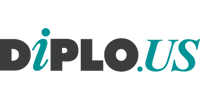Science diplomacy offers many tools to foster collaboration among states and other stakeholders. In this way, the practice can lead to increased mutual understanding and ultimately to more peaceful international relations.
History is full of examples of unexpected cooperation between rival countries. Despite the ongoing Cold War and the ‘space race’ between the USA and the Soviet Union, the two countries also managed to cooperate in space, leading to the famous ‘Apollo–Soyuz handshake’. Another more recent example is SESAME (Synchrotron-Light for Experimental Science and Applications in the Middle East), an experimental facility in Jordan, whose founding members include Bahrain, Cyprus, Egypt, Iran, Israel, Pakistan, the Palestinian Authority, and Turkey.
Yet, practitioners and scholars have pointed out that science diplomacy does not automatically lead to more peaceful relations between countries, and that international cooperation to reach common goals cannot be taken for granted.
Together with our speakers, Dr Kimberly Montgomery (Director of International Affairs and Science Diplomacy, American Association for the Advancement of Science (AAAS)) and Mr Alexis Roig (CEO of SciTech DiploHub and Barcelona’s Chief Science and Tech Envoy), we want to unpack this debate and explore expectations for 2022. We will discuss:
- What are the current trends in science diplomacy?
- What actors, topics, and challenges are becoming more relevant in 2022?
- Will we see more cooperation or more divisions?
- What/how can the practice of science diplomacy contribute to cooperation across divides and even in the face of conflict?
Join us on Tuesday, 5th April, at 13:00 UTC (09:00 EDT | 15:00 CEST | 21:00 CST).
Speakers
Dr Kimberly Montgomery is the director of International Affairs and Science Diplomacy at the American Association for the Advancement of Science (AAAS). In this role, she advises on bilateral and multilateral relationships and manages the AAAS Center for Science Diplomacy. She also serves as the executive editor of the policy journal Science & Diplomacy. She has worked in science policy and international affairs in the USA and Austria. In Austria, she managed and advised on international relationships for the International Institute for Applied Systems Analysis (IIASA) and was a scientific consultant for the International Atomic Energy Agency (IAEA). Her US experience includes six years at the US House of Representatives as professional staff for the Committee on Science, Space, and Technology, and as a legislative assistant for Representative Rush Holt (NJ-12). Directly prior to joining AAAS in 2021, she was a senior programme officer at the Nuclear Threat Initiative (NTI) in the Scientific and Technical Affairs programme.
Mr Alexis Roig currently serves as CEO of SciTech DiploHub, the leading international think-and-do tank working at the intersection of science, technology, and foreign affairs. He also serves as Barcelona’s chief science and tech envoy, and is a professor at the University of Shanghai for Science and Technology (USST), associate researcher at the Barcelona Centre for International Relations (CIDOB), associate professor at the Pompeu Fabra University (UPF) and the Barcelona Institute of International Studies (IBEI). He has over 10 years of experience as a senior advisor on science diplomacy for ministries of foreign affairs and science of governments across Asia, Europe, and Latin America.
Moderator
Dr Katharina E. Höne (Director of Research, Diplo)
About our WebDebates
Our WebDebates on the future of diplomacy are live-streamed on the first Tuesday of every month. They are organised by Diplo within the framework of the International Forum on Diplomatic Training (IFDT). Learn more about our WebDebates series.


